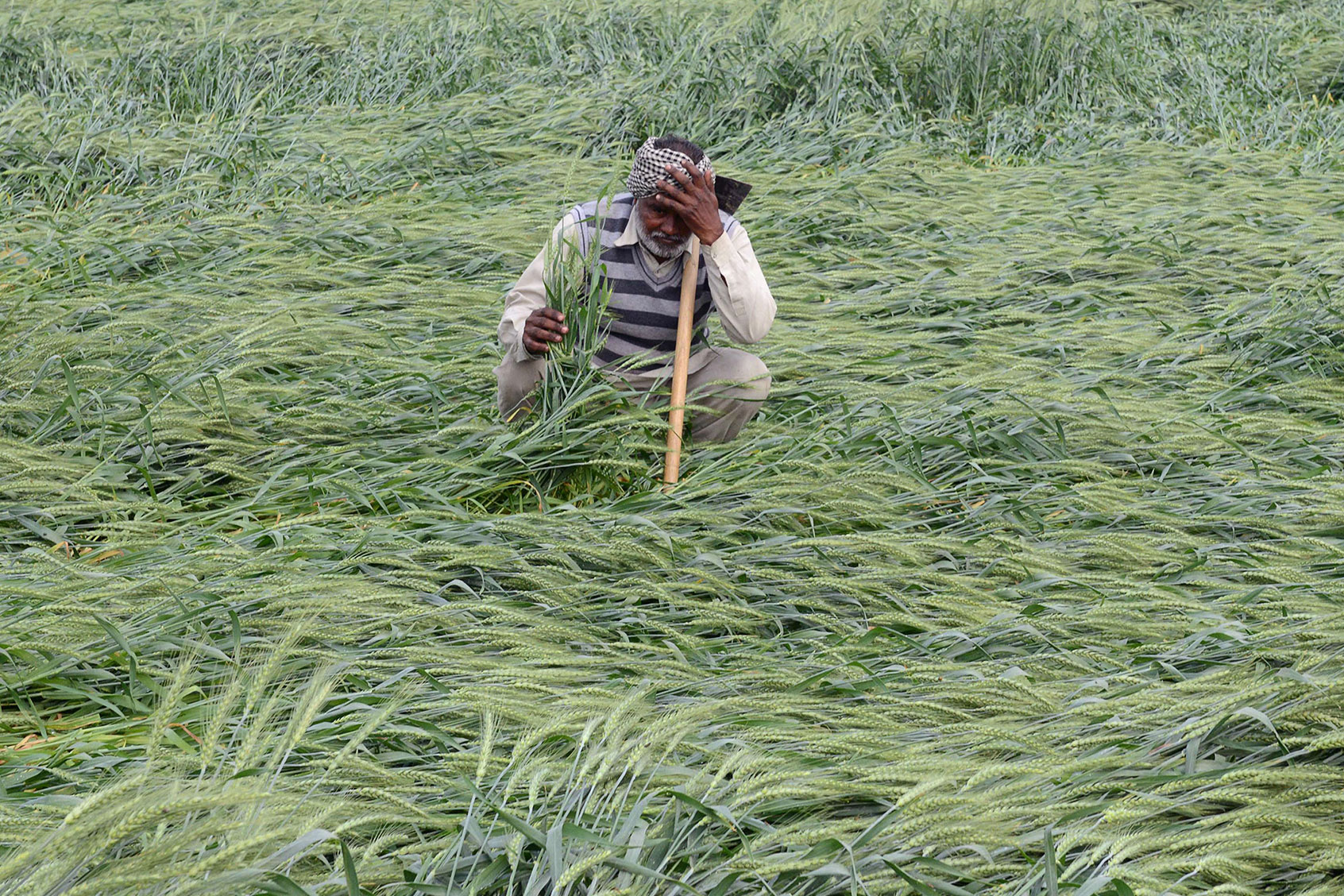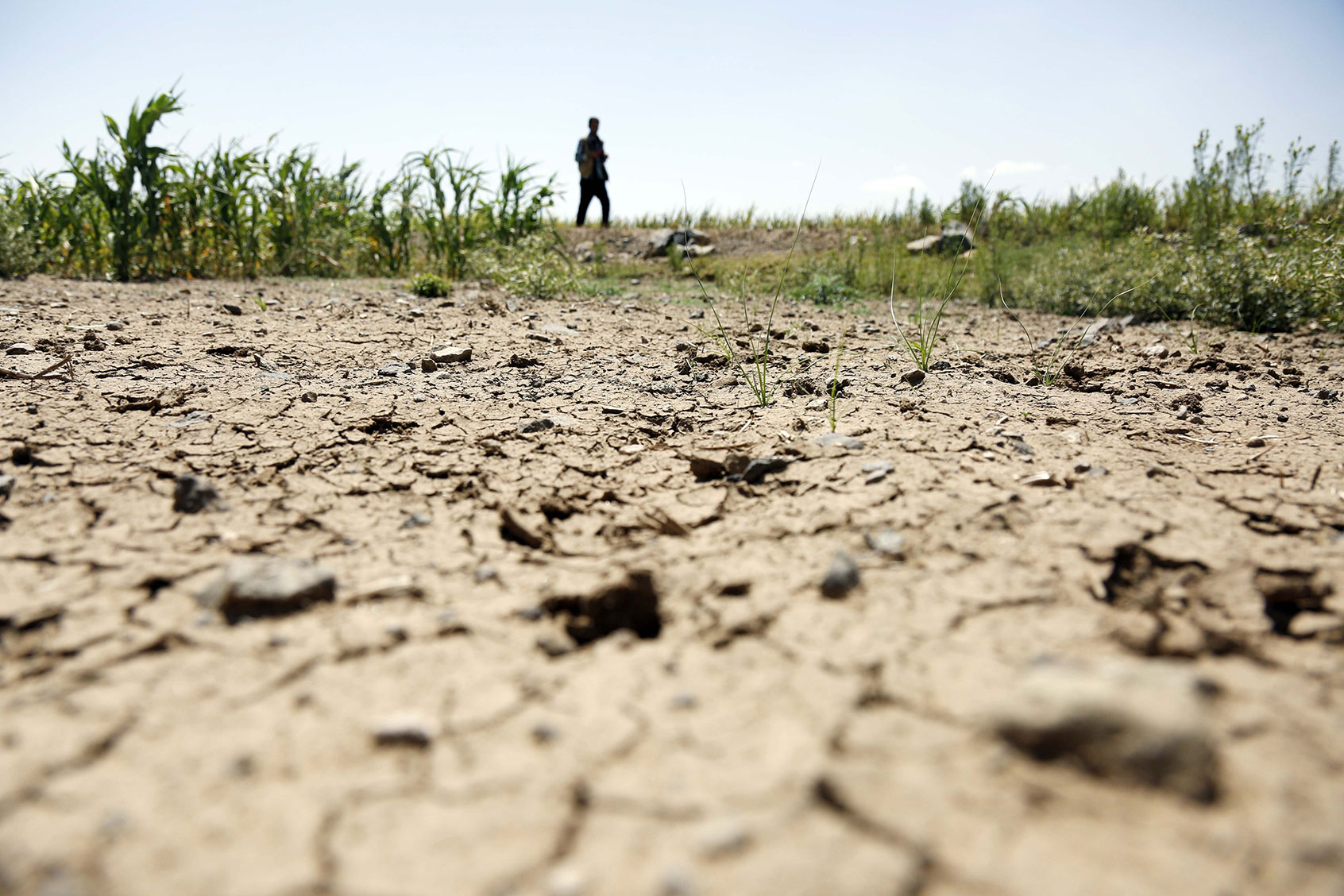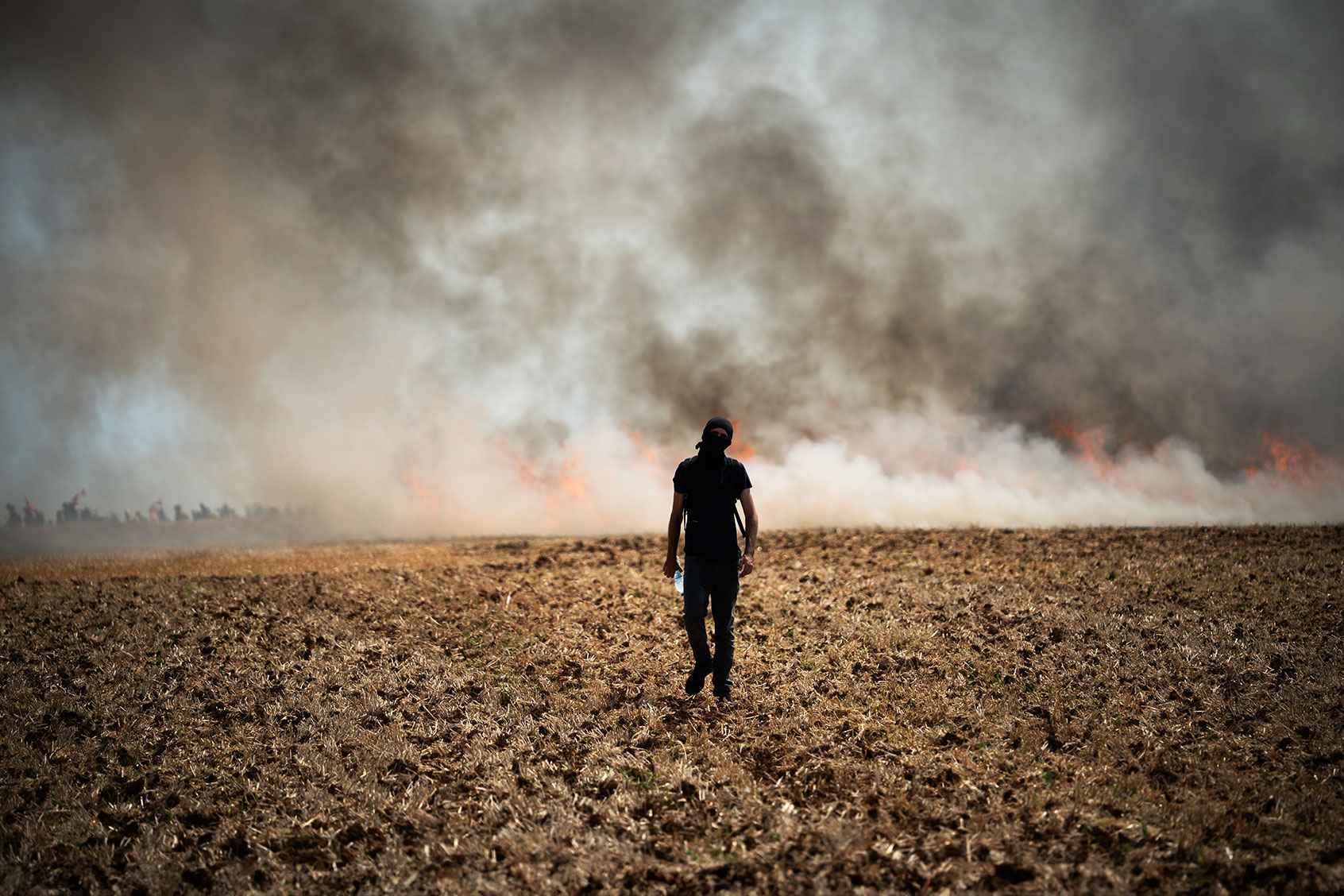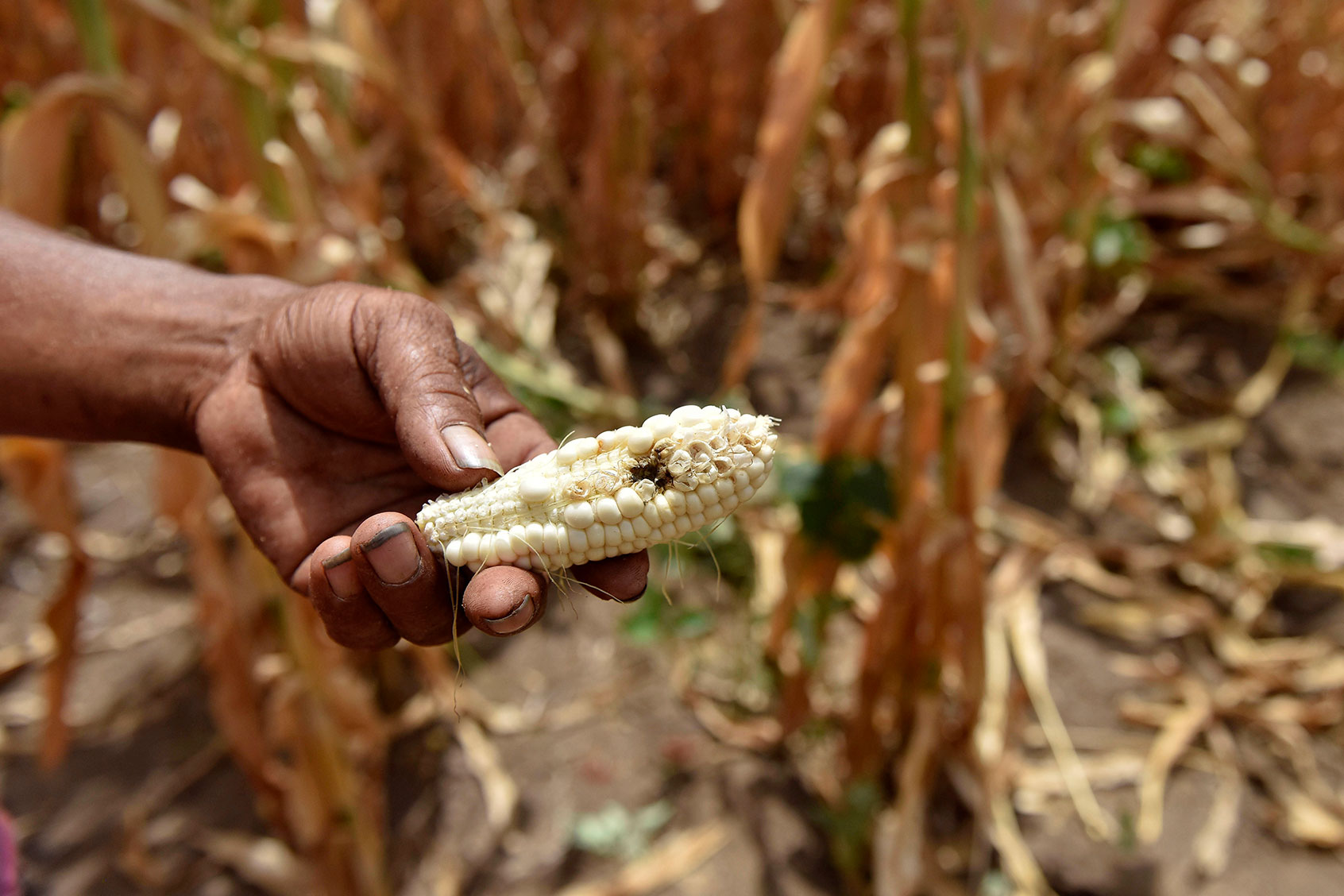2024 was an ominous year for the future of Earth. Climate scientists anticipate that it will be the first year in which the average planetary temperature was 1.5 degrees Celsius higher than pre-industrial levels, a critical threshold established in 2015 during the Paris climate accord. Meanwhile a 2023 study in the journal Proceedings of the National Academy of Sciences found humans brought about as many extinctions over the previous five centuries that if our species had never existed, it would have taken 18,000 years for that same number of genera to have gone extinct on their own.
The good news for humanity is that people have the power to stop these mass extinctions and stave off the worst consequences of climate change. The bad news for our species is that we are not doing any of those things; in fact, we are led by science-denying politicians like Donald Trump in the United States, Vladimir Putin in Russia, Viktor Orbán in Hungary and Javier Milei in Argentina.
Julian Cribb, a British-Australian author who specializes in covering the intersections between science and politics, has published nine books on subjects related to ecocide — the practice in which humans actively destroy their environment. His latest is "How to Fix a Broken Planet: Advice for Surviving the 21st Century," in which he warns that humanity is running out of time to fix the escalating crisis. Among other things, Cribb proposes the creation of a Global Truth Commission to help leaders separate good science and information from bad; technological innovation to wean humanity off of agriculture and create food in more sustainable ways; and strategies that will address all of the threats to humanity’s future holistically, rather than separately. Cribb discussed his thoughts on humanity’s future with Salon.
This interview has been lightly edited for clarity and context.
In the past, you have advocated for a Global Truth Commission. Can you elaborate on what that means, how it would be implemented, and what you'll say to those who claim this violates free speech principles?
A Global Truth Commission basically is a fact-checking agency. The world has 420 fact checking agencies, which are run mostly by media organizations, like Reuters, for example. In Australia, we have one run by the ABC, a fact-checking organization that simply checks the statements of public figures. If they find them to be false or untruthful or misleading, they publish their findings. They don't punish people in any way. They just simply expose the lies for what they are.
 An Indian farmer checks his wheat crop that was damaged in heavy rain on the outskirts of Amritsar on March 21, 2018. (NARINDER NANU/AFP via Getty Images)And we believe now that, such as the torrent of untruths and deception of lies that are pouring forth from politicians, corporate interests and others, we have to make some corrections. Otherwise, you cannot have a democracy. You cannot even have a society if nobody knows what the truth is, because everything begins to disintegrate. Every decision you take is based on false grounds if you allow untruths to rage unchecked. So a World Truth Commission is simply a fact-checking agency that would check the statements of prominent public figures and publish its findings.
An Indian farmer checks his wheat crop that was damaged in heavy rain on the outskirts of Amritsar on March 21, 2018. (NARINDER NANU/AFP via Getty Images)And we believe now that, such as the torrent of untruths and deception of lies that are pouring forth from politicians, corporate interests and others, we have to make some corrections. Otherwise, you cannot have a democracy. You cannot even have a society if nobody knows what the truth is, because everything begins to disintegrate. Every decision you take is based on false grounds if you allow untruths to rage unchecked. So a World Truth Commission is simply a fact-checking agency that would check the statements of prominent public figures and publish its findings.
How do you deal with the fact that with climate change, pesticide pollution, plastic pollution and all of these ecocidal practices, there is so much misinformation that people can't distinguish between what is real and what is fake? How do you specifically make it easier for scientific facts to be widely distributed?
The Council for the Human Future is trying to do just that. We're about to set up a world news website where we will only publish scientifically validated, fact-checked information about these things. People are going to have to learn that if they accept false information, they are likely to incur damage to themselves. That's the penalty of accepting lies. People who believe them end up making bad decisions.
"Climate change is not the only threat. There are 10 major catastrophic threats to the human future."
You can't thrust this on 8.2 billion people, but you can offer them the truth. You can offer them validated truths. In other words, things that have been checked by experts and, and not just asserted by vested interests in business, in commerce, in politics, and so on.
Based on your research into effective political activism, what can individuals who are concerned about climate change do to empower themselves in meaningful ways?
The first thing is to understand that climate change is not the only threat. There are 10 major catastrophic threats to the human future. And they're all working together. They're all coming together at the one time. Climate change is only one of them. So it's only 10% of the problem we have to understand.
The others include resource failure or insecurity — i.e., lack of water and forests and fish and things like that; lack of food; collapse of ecosystems and mass extinction; nuclear weapons, WMDs and things like that; food security/food instability in the global food supply, which is now a major issue worldwide; pandemic diseases, which are breaking out every two or three years now; overpopulation, which occurs whenever you breach environmental boundaries; new technologies, every new technology starts off benign and then becomes malignant very, very rapidly, such as coal being benign in the 1850s, and it's become malignant, or AI, or nanotechnology, or biotechnology — these are all in danger of becoming malignant because they're uncontrolled, and we need control over new technologies; and basically misinformation is a major threat to human survival because people are not being informed about what the real situation is.
 A view of dried soil after the rising temperatures attributed to climate change have resulted in a reduction of water levels in wells and reservoirs across Sanaa, Yemen on August 26, 2023. (Mohammed Hamoud/Anadolu Agency via Getty Images)Why do you think, when people talk about ecocide, we only discuss climate change? Why do we not talk about this more broadly?
A view of dried soil after the rising temperatures attributed to climate change have resulted in a reduction of water levels in wells and reservoirs across Sanaa, Yemen on August 26, 2023. (Mohammed Hamoud/Anadolu Agency via Getty Images)Why do you think, when people talk about ecocide, we only discuss climate change? Why do we not talk about this more broadly?
Because climate change has had huge scientific effort put into it, and consequently, its publicity has raised its profile above the other major threats. But ecological collapse and extinction are far more dangerous to the human future in the long run. We can't survive on a planet that cannot support life. We're destroying life left, right and center at the moment with global poisoning and the like.
Want more health and science stories in your inbox? Subscribe to Salon's weekly newsletter Lab Notes.
Basically ecocide is human overpopulation. Overpopulation is scientifically defined as a state where you start destroying your living environment. Whether you are a grasshopper or a bird or a human, if you start destroying the environment in which you live, then you are overpopulated. That's how we measure overpopulation. And the human species is way overpopulated, about four times overpopulated now. It's not just a number, it's not just about what is the ideal population of the planet, it's about how many people can actually survive here in the long run on the resources which are finite and provided by the Earth. So ecocide is just a kind of a lawyer's term for killing off the cradle of life that supports us.
Are we doomed to be poisoned by pollution or can we still clean the planet?
Every breath you take, you are inhaling toxic chemicals. Whether it's from the rear end of a truck or a bus, or whether it's just coming out of your sofa or all those PFAS chemicals, flame retardants and stuff. Every child born today is born with toxic chemicals in its blood. It takes it in through its mother's milk. It gets a mouthful of pesticide. That’s World Health Organization data, not mine. We are completely surrounded by toxic chemistry.
A lot of it is man-made and a lot of it is man-generated. In other words, actions like mining development, agriculture and so on, unleash a whole lot of chemicals which impinge on us every day. We get them through our mouths, through our skin and in our bones, by breathing. Every person on the planet is being poisoned every second of the day.
It seems like the answer is yes. Are there solutions to this?
We can fix them if we understand the problem. At the moment, we're only understanding bits of the problem. We're obsessed with plastics over here, and we're obsessed with hormone disruptors over there. We're looking at little bits of the problem. We're obsessed with PFAS chemicals. They're tiny. There's 350,000 manmade chemicals, right? And they all break down to make other chemicals and intermix with other chemicals.
We need your help to stay independent
So it's a very complex issue, but there are things we can do to clean up the planet, yes. It's a major problem. It's five times larger than climate change. It kills 10 times more people than climate change, but there are solutions to it, and I've published them in a couple of books.
In some of your books, you made the link between climate change and these other forms of pollution, but also how they are linked to issues like famine and war.
The way most people are going to feel climate change is in the failure of the food supply, because clearly famine is spreading around the world at the moment. Food price inflation is going through the roof. It's what destabilized America enough for the Trump regime to get in. Trump is a climate impact, believe it or not. Trump is a climate impact, an impact of climate change, because when people get nervous about food availability, the price of food, they tend to vote for authoritarian conservative or right-wing regimes. And that's what's happening worldwide. It's not just in America. It's happening in Australia, it's happening in Austria, it's happening in Hungary — it's everywhere. The world is swinging to the right because of this uncertainty generated by the climate impact on food.
"In all my reading of history, I've never found a woman who started a war."
There are many ways that climate impacts food.It creates drought, obviously, and that cuts crop harvest yields. It produces heat waves, which often prevent the flowering of the crops, so that destroys their fertility. Rice, for example, will not grow above 42.2 degrees Celsius. The rice plant dies, so you could lose your rice harvest in a certain area. Things like that and floods will also destroy crops. It’s a big problem.
Agriculture was a beautiful technology for 7,000 years back in the Bronze Age. It is not appropriate to feed 10 billion people on a hot, climate-ravaged earth. We need new ways to produce food, and there are new ways to produce food, and they're being experimented all around the world at the moment.
Climate change is also fueling immigration. How do you propose we handle this?
It's very, very hard to control. I read a report from the Swiss in Zurich predicting 1.2 billion climate refugees by 2050. That's terrifying. The number's about a hundred million at the moment. There's about 350 million humans on the move worldwide now every year. But Zurich is talking about a tripling or a quadruple in the number of human beings on the move that is going to collapse borders. It's going to sweep away governments completely. It's going to utterly destroy the old nation-states as we know them.
For example, if a hundred million refugees come out of Africa and flood into Europe, you are going to lose Spain, Italy and Greece just like that. Their people in turn will flee north into the other countries. You get this displacement effect. It is actually a realistic fear. The only way to keep people in their own countries is to secure their food supply. To do that, you need renewable food and you need to recycle your water.
Can you elaborate on the technology that would provide this renewable food and clean water?
With water, it is simply a matter of recycling. You just use well-established scientific techniques to cleanse the water that you are currently flushing down the toilet or running off the city streets and you remove the bugs from it and put it back into the system with food.
There are three main ways of producing renewable food: One is regenerative farming, which is being practiced by advanced farmers around the world; the second one is recycling all of the nutrients and all the water that currently flow through our big cities, enabling cities like New York or Shanghai or Paris to feed themselves by simply recycling nutrients and growing their own food on the spot with the nutrients and water that they've already got using hydroponic, aquaponic and other systems; and the third one is deep ocean aquaculture, which is being pursued by scientists at Berkeley University of California at Berkeley.
It's a very feasible technology for producing an endless supply of food from the deep oceans, not from the coast. I hasten to add, it's not a form of farming. You use the deep water where you're not impacting any other species around the planet. You're not displacing anything else. You're not cutting down the Amazon in order to feed people. These three systems will create a renewable food supply.
My next question is in one of your books, you mentioned that women would be better to lead on climate change than men. What does smashing the patriarchy, so to speak, have to do with climate change?
In all my reading of history, I've never found a woman who started a war. I don't mean Helen of Troy-type mythology. Women have led countries successfully in defense of their own country, people like Golda Meir in Israel and Indira Gandhi in India and Margaret Thatcher in the United Kingdom. They've defended their country successfully against aggression, male aggression from elsewhere. But in the last 150 years, all wars that have been started, they've all been started by males, either male-dominated governments or kings, basically. Wars of conquest, which are normally fought over territory, food, land and water are things that blokes like doing.
 A protester is walking towards a wildfire started by a launched tear gas canister during a march as part of a rally against the construction of a giant water reservoir (mega-bassine) in Migne-Auxances, western France, on July 19, 2024. (Jerome Gilles/NurPhoto via Getty Images)What do you think of the results of the 2024 election in which a candidate who acknowledges science was a woman and lost to a candidate who does not acknowledge science and is a man?
A protester is walking towards a wildfire started by a launched tear gas canister during a march as part of a rally against the construction of a giant water reservoir (mega-bassine) in Migne-Auxances, western France, on July 19, 2024. (Jerome Gilles/NurPhoto via Getty Images)What do you think of the results of the 2024 election in which a candidate who acknowledges science was a woman and lost to a candidate who does not acknowledge science and is a man?
That was partly the result of misinformation, which we discussed earlier, but also as I mentioned, climate is already driving up inflation and it's making the food supply less secure. There is drought all through America at the moment. People are feeling very nervous. Now, to give you an example, in the 1930s, Germany had been through a horrendous famine and starvation in World War I, when nearly a million Germans died of hunger. That was what drove Germany into the arms of the National Socialists. Basically, this insecurity regarding food and inflation, a massive inflation under the Weimar Republic, shook people to the core. So basically that's what makes people nervous and they tend to go for big, tough authoritarian male leaders. And I think that's what, from my reading of all the American commentary, it was basically economic insecurity that delivered Trump the win.
But of course, he's already appointing a cabinet of the cognitively impaired, people who simply do not understand the problem or else are hostile to objective information. You're going to get some very bad decisions in the next four years, and America's going to be a very unpleasant place to live for ordinary, decent human beings. A lot of the ugly aspects of authoritarian rule are probably going to become manifest. So you have my heartfelt sympathies, but it's going to happen in a lot of other countries, not just America. It's happening in Britain. It's happening in Australia. It's a pretty universal trend at the moment, and it's not going to save us. It’s going to speed our demise.
Read more
about climate change


